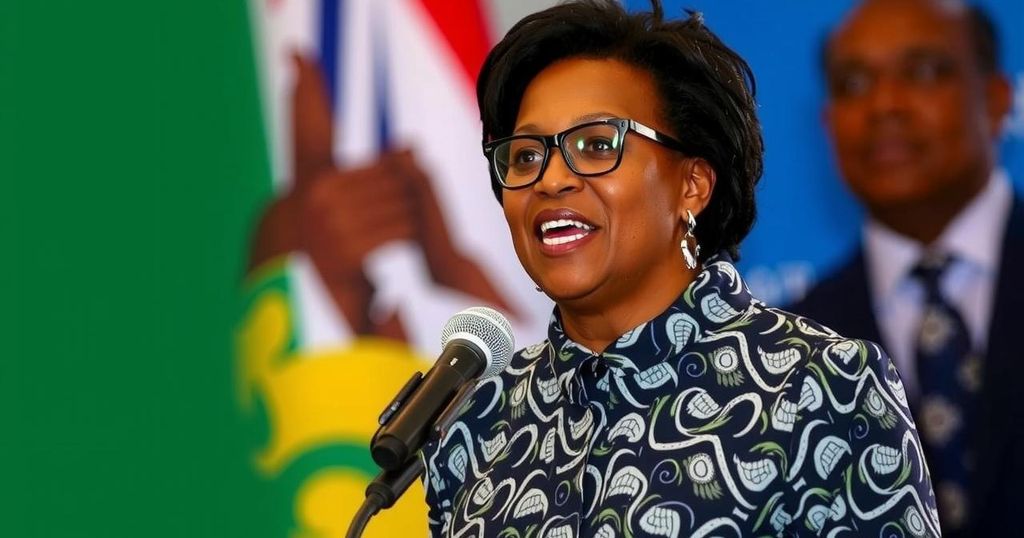Namibia’s Vice President Netumbo Nandi-Ndaitwah is leading in early election results amid significant issues during the voting process. The opposition contests the results, claiming illegal procedural extensions, setting the stage for potential court challenges. Economic frustrations and corruption allegations against the ruling SWAPO party complicate the electoral landscape as the nation watches closely for final updates and potential ramifications on governance.
In Windhoek, Namibia, Vice President Netumbo Nandi-Ndaitwah emerged as the frontrunner in the country’s recent presidential election, held on November 27, 2024. Despite technical complications that delayed voting by three days, she garnered approximately 56% of the votes counted thus far. However, the opposition, represented notably by Panduleni Itula of the Independent Patriots for Change, claimed that the extension of the voting process was unlawful and has vowed to challenge the election results in court. Nandi-Ndaitwah, seeking to make history as Namibia’s first female president, faces not only the opposition’s contest but also the burden of public dissatisfaction with the ruling South West Africa People’s Organization (SWAPO) over rising unemployment and corruption allegations. The final outcome of the election is anticipated this week, amid potential court proceedings seeking to invalidate the results.
Namibia, known for its stable democratic practices since gaining independence from apartheid South Africa in 1990, is currently experiencing growing unrest as citizens express frustration over economic hardships and governance issues. Nandi-Ndaitwah’s candidacy represents a possible shift in leadership, yet significant obstacles remain, including a lack of public trust towards SWAPO, which has been at the helm for over three decades. The environment is set against a backdrop where citizens are increasingly demanding accountability and broader socio-economic progress. Moreover, regional political turbulence in neighboring countries highlights an evolving political landscape throughout southern Africa.
While the Electoral Commission of Namibia has stated that there will be no re-election, the opposition parties, led by McHenry Venaani of the Popular Democratic Movement, are committed to pursuing legal avenues to contest the election’s legitimacy. The backdrop of dissatisfaction with ruling parties in the region emphasizes the urgency for reform and responsiveness to citizen needs, which may influence the trajectory of Namibia’s political future.
The recent presidential election in Namibia is significant as it features Netumbo Nandi-Ndaitwah, the nation’s Vice President, as the leading candidate, aiming to become the first woman to hold the presidency. The election was marred by logistical challenges, including a shortage of voting materials and extended polling days, which have brought the legitimacy of the election into question. Namibia has historically been viewed as a stable democracy; however, current economic issues and calls for greater accountability from political leaders have sparked public discontent, making this election particularly pivotal in its political context. The opposition parties’ commitment to challenging the election results reflects broader trends in southern Africa, where ruling parties are experiencing increased scrutiny and demands for change in governance.
The unfolding situation in Namibia regarding the presidential election highlights the critical interplay between governance, public sentiment, and democratic processes. With early results favoring Vice President Nandi-Ndaitwah yet overshadowed by operational deficiencies in the election process, the potential for legal disputes looms large. The electorate, dissatisfied with the status quo, is demanding substantial reforms, indicating a crucial moment for Namibia as it navigates its democratic identity amidst economic challenges and opposition pressures. As the nation moves forward, the outcome of the election will likely set a significant precedent for future political engagement and accountability in Namibia.
Original Source: apnews.com






